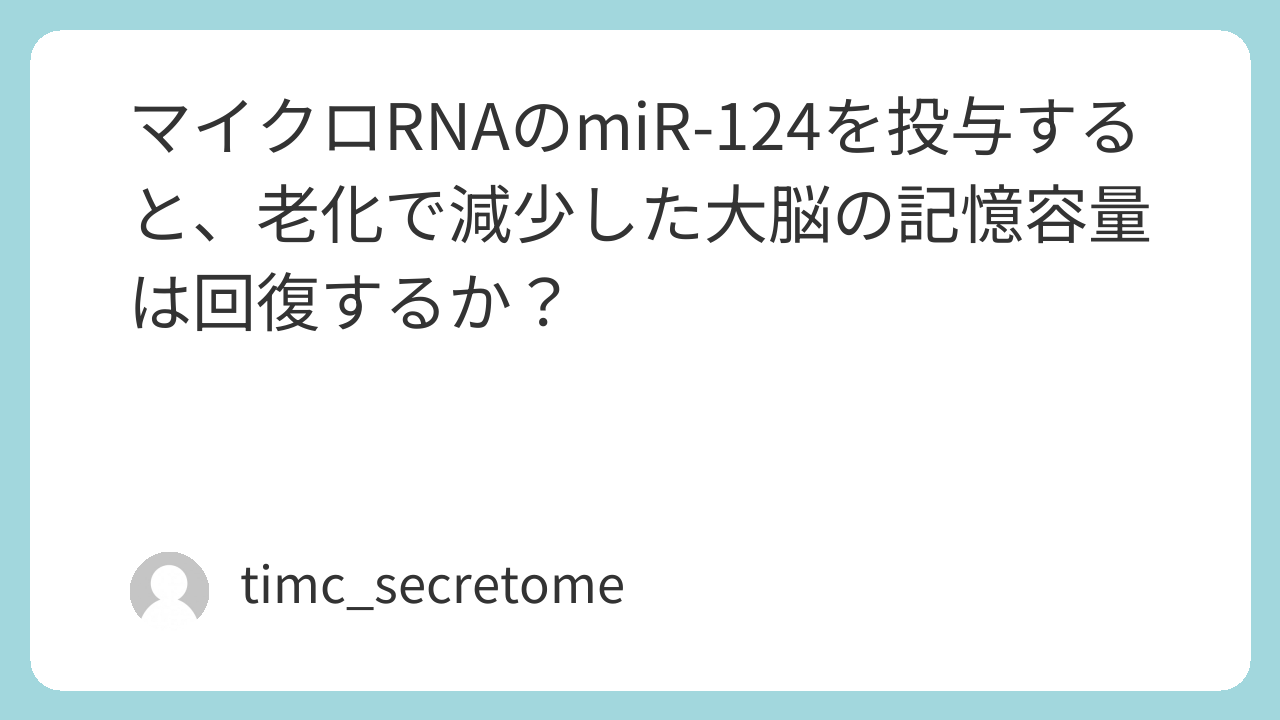【マイクロRNAのmiR-124を投与すると、老化で減少した大脳の記憶容量は回復するか?】
近年の研究で注目されているのが、乳歯の歯髄から抽出されたマイクロRNA「miR-124」だ。この分子を高齢の認知症患者に投与すると、脳内の神経前駆細胞──ニューロンのもとになる細胞が再び分裂・増殖を始めるという。
この現象は、まるでパソコンにメモリーを増設するようなもの。新しい神経細胞が供給されることで、情報処理の効率が向上し、記憶の保持力が回復する。実際、miR-124を含むエクソソームを点鼻投与された高齢マウスでは、記憶力テストの成績が劇的に改善されたという報告もある。
もちろん、ヒトへの応用にはまだ課題が多い。しかし、miR-124は「脳の再生スイッチ」として、認知症治療の新たな可能性を示している。
【Can Administering microRNA miR-124 Restore Memory Capacity in the Aging Brain?】
Recent studies have spotlighted microRNA miR-124, extracted from the dental pulp of baby teeth. When administered to elderly patients with dementia, this molecule appears to awaken dormant neural progenitor cells—the precursors to neurons—prompting them to divide and multiply once again.
It’s a phenomenon akin to upgrading a computer’s memory. With new neurons supplied, the brain’s processing efficiency improves, and memory retention is restored. In aged mice given intranasal doses of exosomes containing miR-124, performance on memory tests showed remarkable improvement.
Of course, translating this to human therapy remains a challenge. Yet miR-124 is emerging as a potential “brain regeneration switch,” offering a new frontier in dementia treatment.



コメント